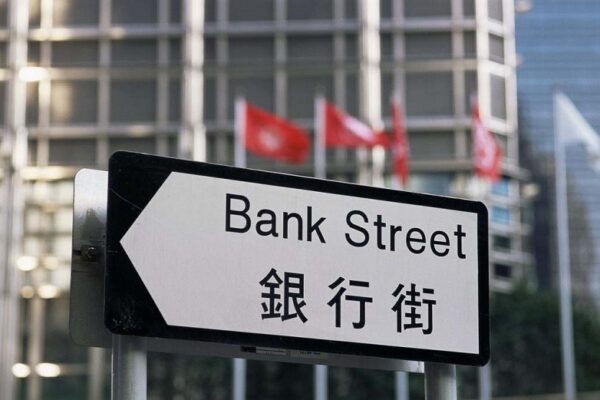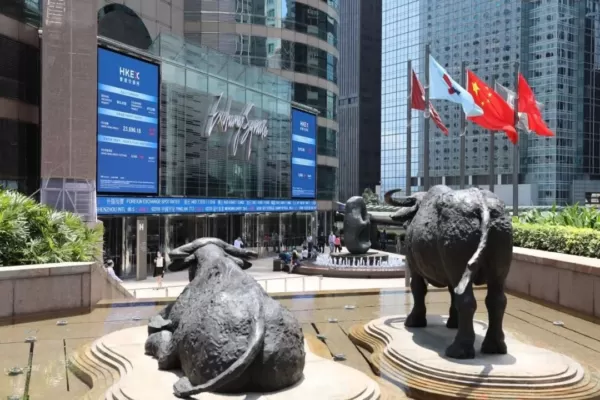
The Four Essential Wealth Mindsets for High Net Worth Families
2023-10-05
Latest | The Hong Kong Investor Entrant Scheme will be re-launched soon!
2023-10-13All along, Hong Kong's securities market has attracted a large number of enterprises at home and abroad to list in Hong Kong by virtue of its status as an international financial center, as well as its well-established system and first-class services.
In recent years, Tencent, Alibaba, in addition to the four major banks, Ping An of China, PetroChina, Sinopec, Meituan, Xiaomi, Haidilao and other well-known companies have been listed on the Hong Kong Stock Exchange.

Hong Kong has been ranked among the world's capital formation markets based on a robust judicial system, adherence to international standards and practices, strong capitalization of the market, active participation of both institutional and retail investors, and the presence of industry elites, among other favourable factors.
According to the statistics of HKEx, by the end of 2022, the number of mainland enterprises listed in Hong Kong has reached about 1,400, accounting for 47% of the total number of listed companies in Hong Kong; among them, the number of newly listed mainland enterprises in Hong Kong in 2022 is 75, accounting for 89% of the newly listed enterprises. 26 of them are H-share companies, 1 red-chip company, and 48 mainland private enterprises, with mainland enterprises accounting for 83%, with a market capitalization of HK$2,741.303 billion.
Judging from the data, mainland companies have dominated the Hong Kong IPO market.

What are the specific advantages and benefits of listing Mainland enterprises in Hong Kong?
01. Mainland capital support, full release of investment value
On the one hand, the in-depth connection of the Shanghai-Shenzhen-Hong Kong Stock Connect can bring to Hong Kong extensive capital support from the Mainland, which is a source of impetus for Hong Kong's market to continue to develop and make breakthroughs. On the other hand, Hong Kong is the offshore market with the closest connection to China, and Hong Kong investors have a deep understanding of mainland companies, which can fully unleash their investment value.
02. Hong Kong listing is efficient and more convenient
Firstly, Hong Kong's capital market is highly market-oriented, less subject to policy intervention, with clear regulations and transparent policies, and it is easier to obtain approvals, and enterprises can basically prejudge whether they can be listed successfully with a higher degree of certainty.
Secondly, the issuance system of Hong Kong's capital market implements a registration system, and the Exchange is able to decide whether an enterprise can be listed or not, and the listing process can generally be completed in 6 to 12 months. On the contrary, the issuance system in the Mainland adopts an approval system, and whether a company can be listed successfully depends on the approval rate of the Securities and Futures Commission (SFC).
For example, Nongfusanquan signed a listing counseling cooperation agreement with CITIC Securities from 2008, and has been counseling until the termination of the agreement on December 29, 2018, and has not been able to list on the A-share market, and the efficiency of the listing can be seen.

0.3 Low listing threshold and rich issuance structure
Enterprises with a market capitalization of more than HK$500 million can be listed on the Main Board, while those with a market capitalization of more than HK$200 million can be listed on the Growth Enterprise Market (GEM), and companies of this market capitalization scale cannot even reach the threshold of the Securities and Futures Commission (SFC) in the Mainland.
Hong Kong allows large-scale new economy enterprises to adopt the mode of equity structure with different rights for listing, such as Xiaomi and Meituan; for biomedical companies that require a large amount of R&D investment in the early stage, they are also allowed to be listed in the case of unprofitable.
04.No restrictions on issue price, easy transfer of equity
The scale of financing for enterprises in the Hong Kong market is determined on a market-oriented basis, and the issue price is not subject to any price-earnings ratio restriction, so that more funds can be raised at one time. If an enterprise is listed in the Mainland, the shares of controlling shareholders need to be locked up for 36 months before they can be transferred in the secondary market. If an enterprise is listed in Hong Kong, the lock-up period for the shares of the promoters is generally only six months.

05.Abundant and accessible means of financing
After six months of listing in Hong Kong, a company can raise additional shares, usually by authorization of the board of directors by the general meeting of shareholders, without the need for additional administrative approvals.
Moreover, there are many means of financing available in Hong Kong, including the issuance of new shares, convertible bonds, warrants, high-interest bonds, leveraged financing, and so on, all of which can be carried out through the capital market. With an abundant supply of capital, a well-established legal system and little human intervention in the market, financing is very convenient.
06.Enhancing international visibility and expanding international influence
Hong Kong capital market is a more internationalized place, listing in Hong Kong will greatly improve the company's visibility in the international arena, expanding the influence of the corporate brand in the international arena, which is conducive to the enterprise to open up the international market with the help of the international capital, which can allow more potential customers to learn about the company and its products, establish trust, and bring convenience for the development of the company's various businesses. 07Ease and efficiency of mergers and acquisitions
The use of shares as a tool for M&A by Hong Kong-listed companies is relatively common and is market-based, without the need for administrative approvals. If the platform of Hong Kong-listed companies is utilized for international M&A, the convenience is also superior to that of A-share companies involving cross-border approvals.08Facilitate the issuance of various types of equity derivatives
In addition to issuing stocks, Hong Kong listed companies can issue various types of stock-based derivatives. These derivatives help bring in long-term investors to hold them and support stock valuation and liquidity.

It can be said that the Hong Kong Stock Exchange has set up a "Nasdaq in China" for mainland enterprises to rely on.
Hong Kong is highly internationalized in terms of both market regulation and investor structure, with closer integration and linkage with overseas markets, making it an ideal destination for the return of Chinese stocks and a clear complement to the Shanghai and Shenzhen markets.
For enterprises that find it difficult to meet the requirements for A-share listing, the Hong Kong market's flexible system, convenient financing and huge liquidity are undoubtedly the best listing options for mainland enterprises.


